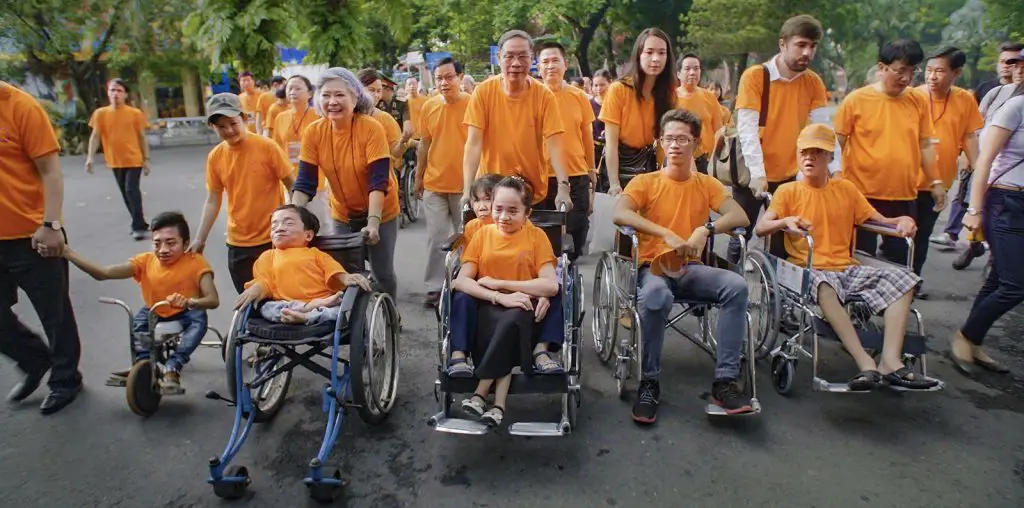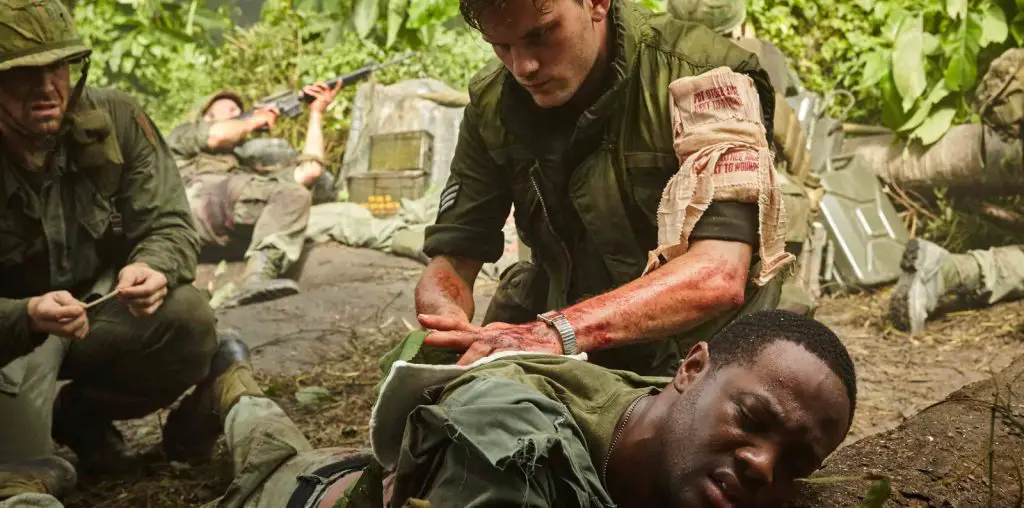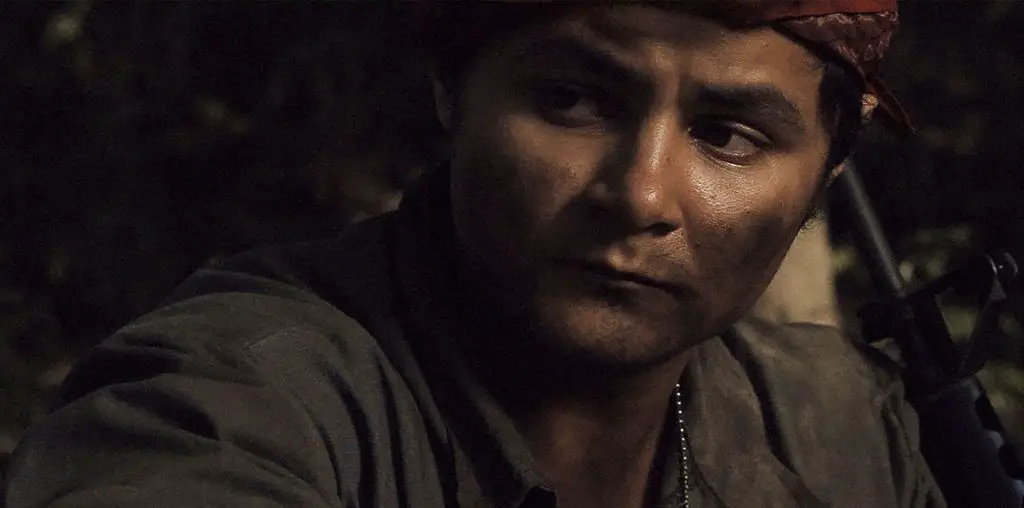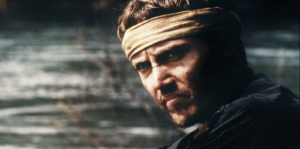
With the Oscars just around the corner, the Film Threat writers review films during a time when the Best Picture was actually the Best Picture.
The Deer Hunter, which won the 1979 Academy Award for Best Picture, is a war movie unlike any other ever made.
Maybe that’s because, in some sense, it was never intended to be one. The film’s genesis was a screenplay by Louis Garfinkle and Quinn Redeker, set in Las Vegas, in which characters gambled with their lives playing Russian roulette. Only the latter element survived when director Michael Cimino and writer Deric Washburn became attached to the project, and it remains the most memorable and – undoubtedly – the most controversial aspect of the three-hour Vietnam epic that it would ultimately become.
It’s easy enough to see how Cimino and Washburn could find, in the barbaric practice of Russian roulette, a powerful metaphor for the experiences of so many young Americans callously chewed up by the war machine. The unfathomable horror of staring immediate death in the face, the detachment from one’s innate value for human life, the utter and extraordinary senselessness of it all – what more perfect symbol for all of that than a loaded gun pressed up against a desperate man’s head? Detractors – and there have been many – derided the notion of captured POWs being forced to play Russian roulette as nothing but a historically inaccurate invention of the filmmakers. But those sequences, which are absolutely central to the narrative, have a visceral and allegorical power that resonates far beyond any question of their verisimilitude.
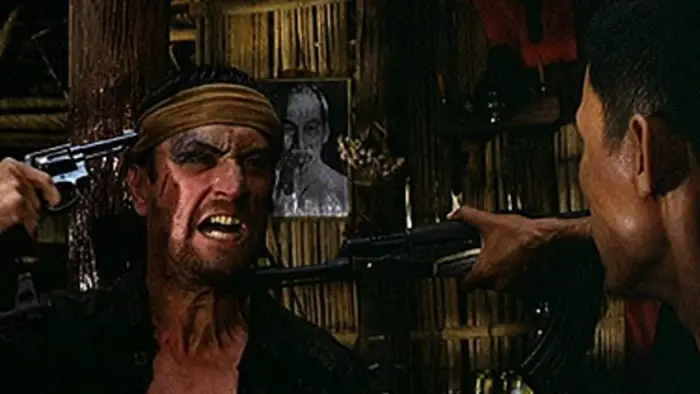
“…Mike, Nick, and Steven’s imprisonment and torture by the Viet Cong…”
Russian roulette was not at all the only bold, brilliant departure that The Deer Hunter brought to the canon of Hollywood war pictures. It’s surprising, for one, how very little of its lengthy running time is spent in Vietnam. That’s because the film does so much, and with such specificity and grace, to instill an uncommonly powerful sense of home. The run-down Pennsylvania steel-mill town where its characters have spent their entire lives may not be pretty, but it’s undeniably theirs – a place where the children of Eastern European immigrants can live, work, love, and die surrounded by their friends and traditions. As Christopher Walken’s Nick muses in an uncharacteristic and beautiful moment of introspection, “I love this place.”
Nick is cocky and carefree, while his best friend and roommate Mike (Robert De Niro) is more cerebral and practical. They’re both in love with sweet Linda (Meryl Streep) – though she’s ostensibly “with” Nick – and they’re both about to be deployed to Vietnam alongside their more boyish buddy Steven (John Savage). Their tight-knit group also includes Stan (John Cazale), Axel (Chuck Aspegren), and John (George Dzundza). All of these young, wide-eyed, rowdy blue-collar boys who screw around and drink too much are somehow wildly relatable and endearing despite it all — or maybe because of it. We get to know them and, in a very real sense, love them over the course of the rambling but carefully orchestrated first hour, which follows them through the day and night of Steven’s wedding and one of their regular trips up into the mountains to hunt deer.
Every chapter – the wedding; Mike, Nick, and Steven’s imprisonment and torture by the Viet Cong; a somber homecoming; an ultimately futile effort at spiritual atonement – is rendered with breathtaking assuredness by Cimino in what is incredibly only his second directorial effort. There’s an operatic weight to the entire film, and it overflows with unforgettable moments: De Niro running down a moonlit street in his underwear; a spatter of ceremonial red wine ominously spoiling a wedding dress; a joyous booze-soaked singalong to “Can’t Take My Eyes Off You.” There’s a wedding sequence that, in its scope and its dramatic portent, rivals The Godfather. The closing scene is one for the ages, too; it’s stirring and emotionally overwhelming in the moment, yet philosophically much more complicated on further reflection.
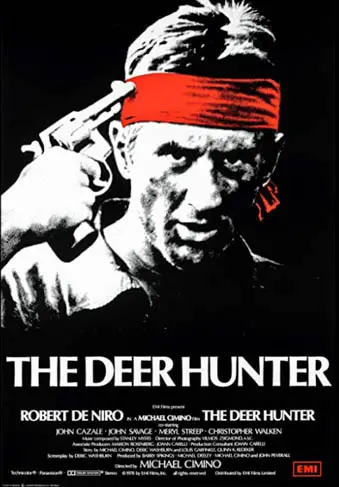
"…a war movie unlike any other..."
